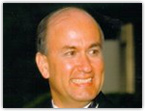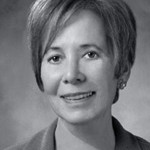Charles Calderon, the former majority leader of both the state House and Senate, is running. He naturally has lined up a solid list of political endorsements and will run a higher profile campaign than we’re perhaps accustomed to in picking judges.
Former Majority Leader Makes Interesting Judicial Candidate
Charles Calderon, the former majority leader of both the state House and Senate, is running. He naturally has lined up a solid list of political endorsements and will run a higher profile campaign than we’re perhaps accustomed to in picking judges.
Push Is On For Latino On State High Court
News this week that Republican Joyce L. Kennard is retiring from the California Supreme Court has already launched a push for diversity on the state high court. The Los Angeles Times is one media outlet taking notice, reporting that “… some Latino groups reacted furiously in 2011 when Brown chose Justice Goodwin Liu, a former UC Berkeley law professor, over Latino candidates. The seven-member court has no Latino or African American member, and Liu, a liberal, is its only Democratic appointee.”
Judge Kennard herself proved controversial in her decades on the court, at least among California conservatives, as she consistently moved to the left of the Republican mainstream. Appointed by Gov. George Deukmejian, a true law-and-order conservative by California standards, she often voted in line with Justice Stanley Mosk, a mostly liberal member.
She leaves the bench in April. Let the speculation begin. Start with the L.A. Times here.
Famous Judge Ito May Not Seek Re-Election
Judicial Reporter Offers Stark 2013 Recap
For anyone dealing with rationed justice in 2013, it felt like a nearly constant barrage of bad news. Now Bill Girdner at The Courthouse News offers a year-in-review piece that quickly reminds us why – because it was a barrage of bad news. The story begins with “… it was a news-filled year for the courts in California, as they survived huge budget cuts and walked backwards on transparency and slightly forward on reform as the Legislature told them to open a warren of closed committees.”
He notes the budget cutting and that it was considered a “reprieve” when the governor decided not to cut the budget even more. He even recalls when In “… an old scandal returned as the council over-rode objections from judges and allowed telecommutingby the highly paid mandarins of the Administrative Office of the Courts… in a companion decision, the council voted to take a look at the salaries of those same bureaucrats but later decided that the inquiry should be conducted by the bureaucrats themselves. As the year winds down, the inquiry seems to have stalled.”
In terms of the legal community, it reads less like the summary of a year-in-review and more like an indictment. See the story here.
(Program Note: The CCM will not update tomorrow as we observe the New Year’s holiday)
‘King George’ Book Keeps Quotes Coming
Reports from the “King George” book signings keep making the rounds, including comments from a Berkley event where retired Los Angeles County Judge Charles Horan was quoted as saying “[Former Chief Justice Ronald M. George) never had enough power… I don’t know of a judge who hasn’t referred to him as King George. That was standard.”
The Courthouse News reports that “… while in California’s top judicial post, George was a principal force behind the centralization of California’s trial courts. Legislation in 1997 gave control of court rules and the roughly $3 billion court budget to California’s Judicial Council, where the chief justice chairs the meetings, votes and appoints 14 of the 21 voting members. The legislation also resulted in a huge growth in the personnel and power of the central court bureaucracy, where the chief justice is the staff’s ultimate boss.”
Judges Might Hear Cases Of Political Donors
Gov. Signs Law, Illegal Immigrants Can Become Lawyers
Gov. Considering Major Court-Outsourcing Bill
You can read the report here.

